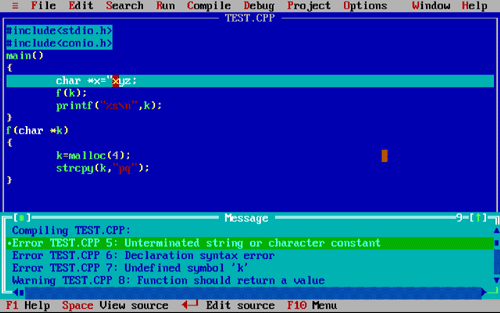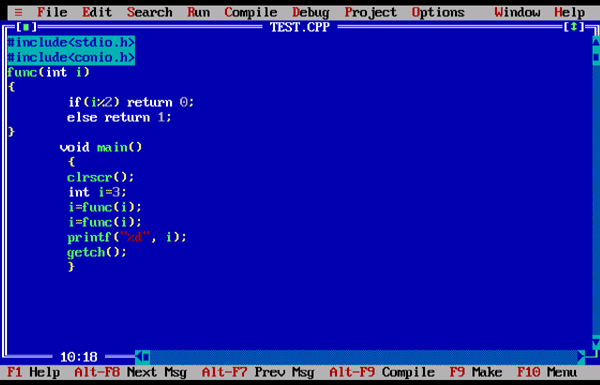main()
{
char *x="xyz;
f(k);
printf("%s\n",k);
}
f(char *k)
{
k=malloc(4);
strcpy(k,"pq");
}
What will be the output?
Answer: Option [C]
There is an opening quote in the third statement but no closing. So syntax error occurs.



